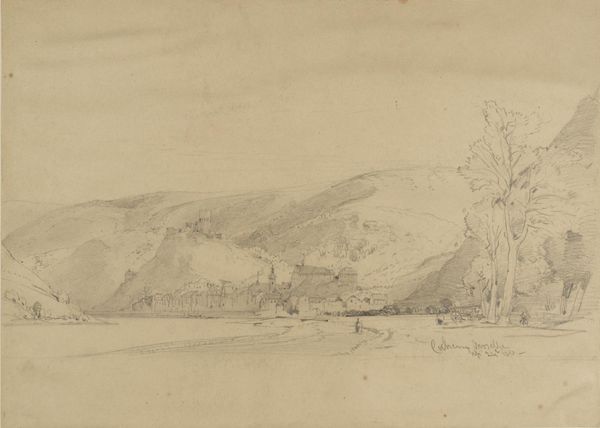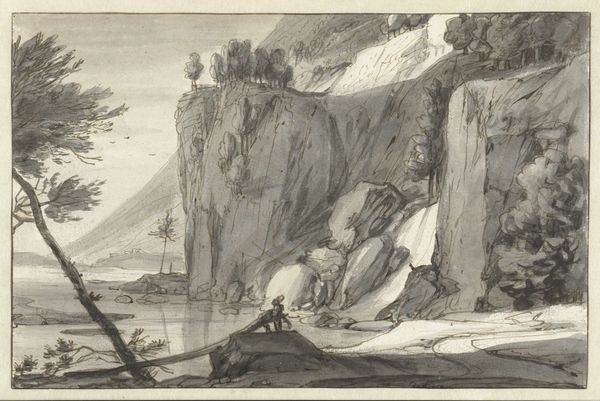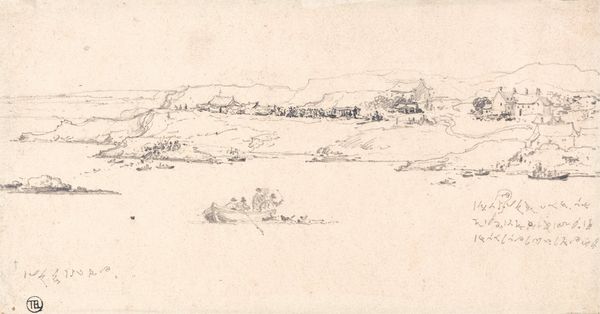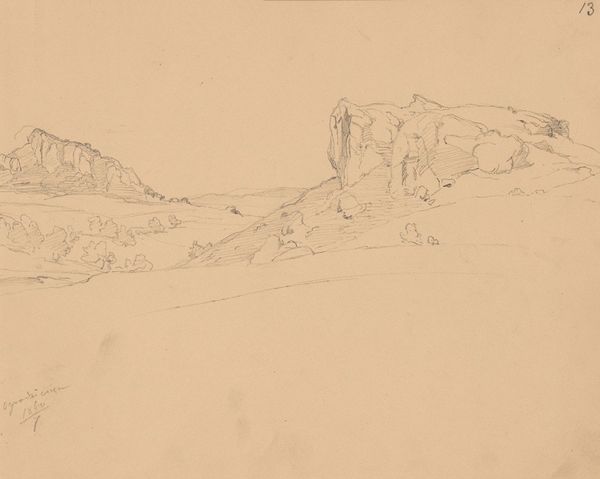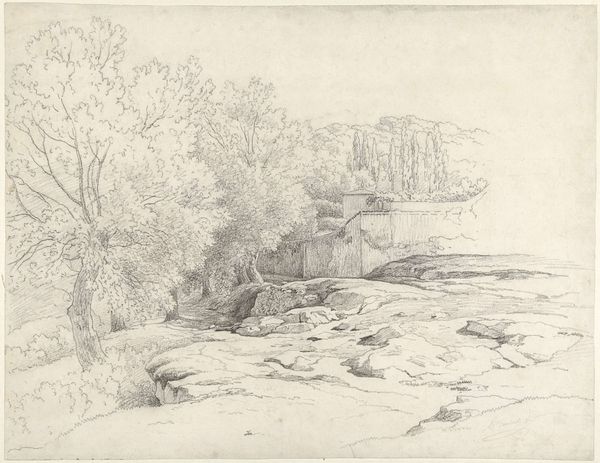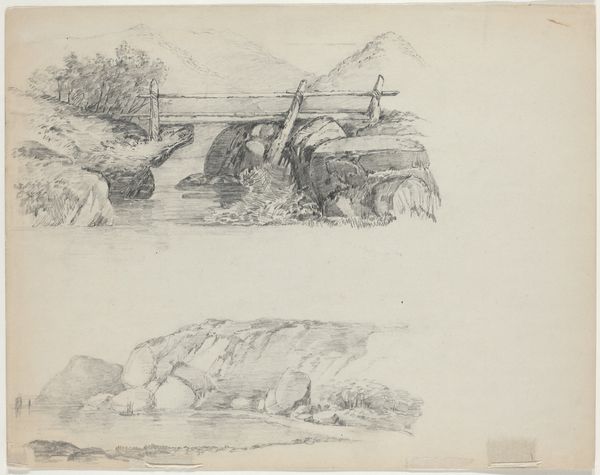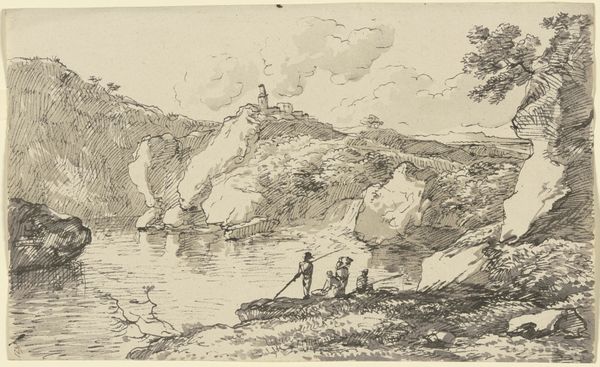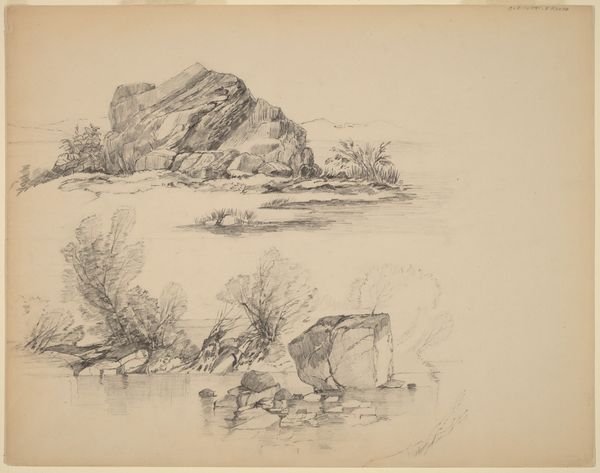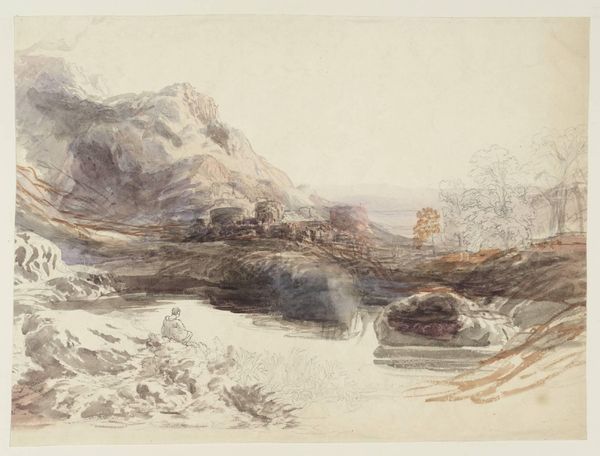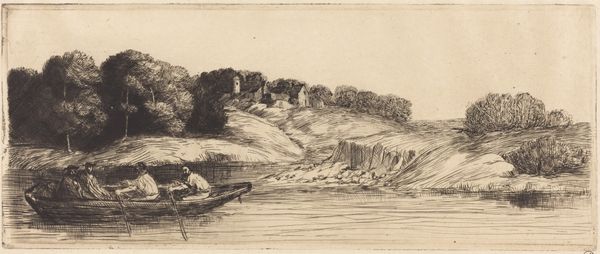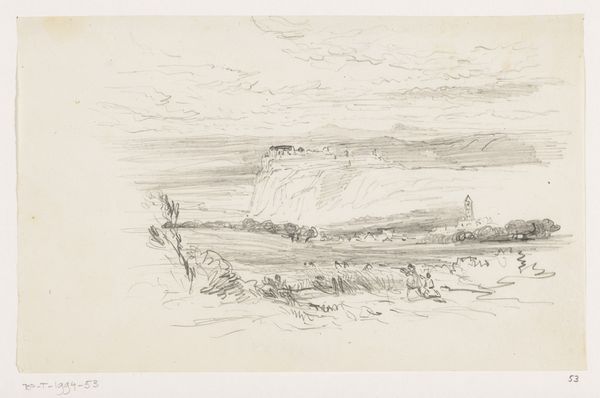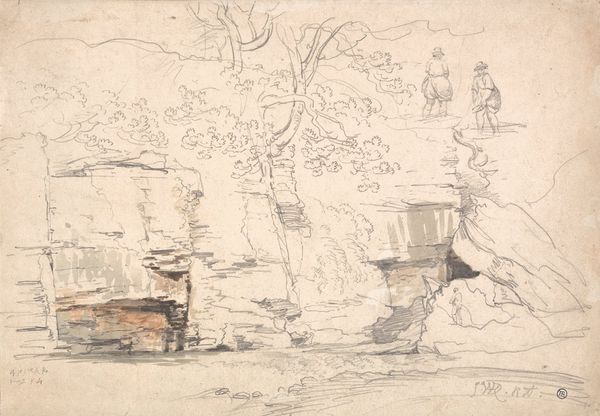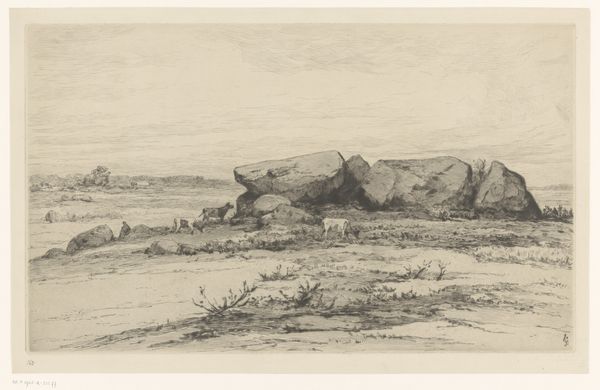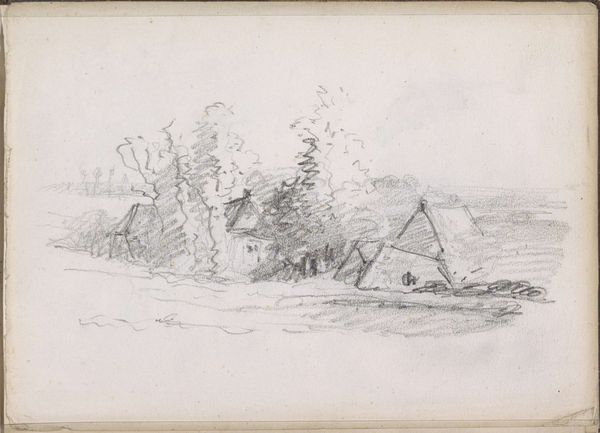
drawing, pencil
#
drawing
#
pencil sketch
#
landscape
#
pencil
#
academic-art
#
realism
Copyright: Public Domain: Artvee
Curator: We’re looking at "Ruins of Richbro’ Castle, Isle of Thanet," a pencil drawing by James Ward. It captures a landscape, well, dominated by crumbling stone. Editor: My first thought? Melancholy. There’s a quiet sadness in those ruins. It feels almost dreamlike, especially with the limited color palette. Like a memory fading at the edges. Curator: I’m interested in Ward's choice of material. Pencil as a medium lends itself to sketches and preliminary studies. Here, the use of graphite emphasizes the raw geological materiality of the castle remains. He’s drawing attention to the very stuff that civilization is built upon, now broken down. Editor: You're right; the pencil strokes give a tactile sense, almost like feeling the texture of the stones yourself. I like how he captures the roughhewn quality; they aren't just abstract shapes but carry their geological past in every line. But there's a tenderness, too, you know? Curator: Tenderness in ruins? I suppose you are thinking about how Ward depicts the labor of nature against culture? The relentless force eroding stone into mere material for wind and weather? Editor: Exactly! It feels like an elegy, but also maybe a soft surrender? Like accepting impermanence with grace, with the landscape embracing it again, even in pencil form. It is very poetic! Curator: This also speaks to a changing perspective towards the aesthetic of ruins. Rather than emblems of loss or destruction, they were seen as sublime symbols of historical continuity. Think of the Industrial Revolution and how it triggered a growing interest in, or an escape to, romantic landscapes and the antiquarian collecting that drove curiosity. Editor: So, a fashionable sort of decay. Even so, to look at those forms, and that specific texture conjured with graphite, I think it transcends trends and settles as truth: beautiful and poignant. What I appreciate most in the artwork, in the end, is its contemplative mood. Curator: It is striking. Thinking about artistic creation as both reflecting on its means of production and provoking quietude within the audience – maybe James Ward achieves both.
Comments
No comments
Be the first to comment and join the conversation on the ultimate creative platform.
